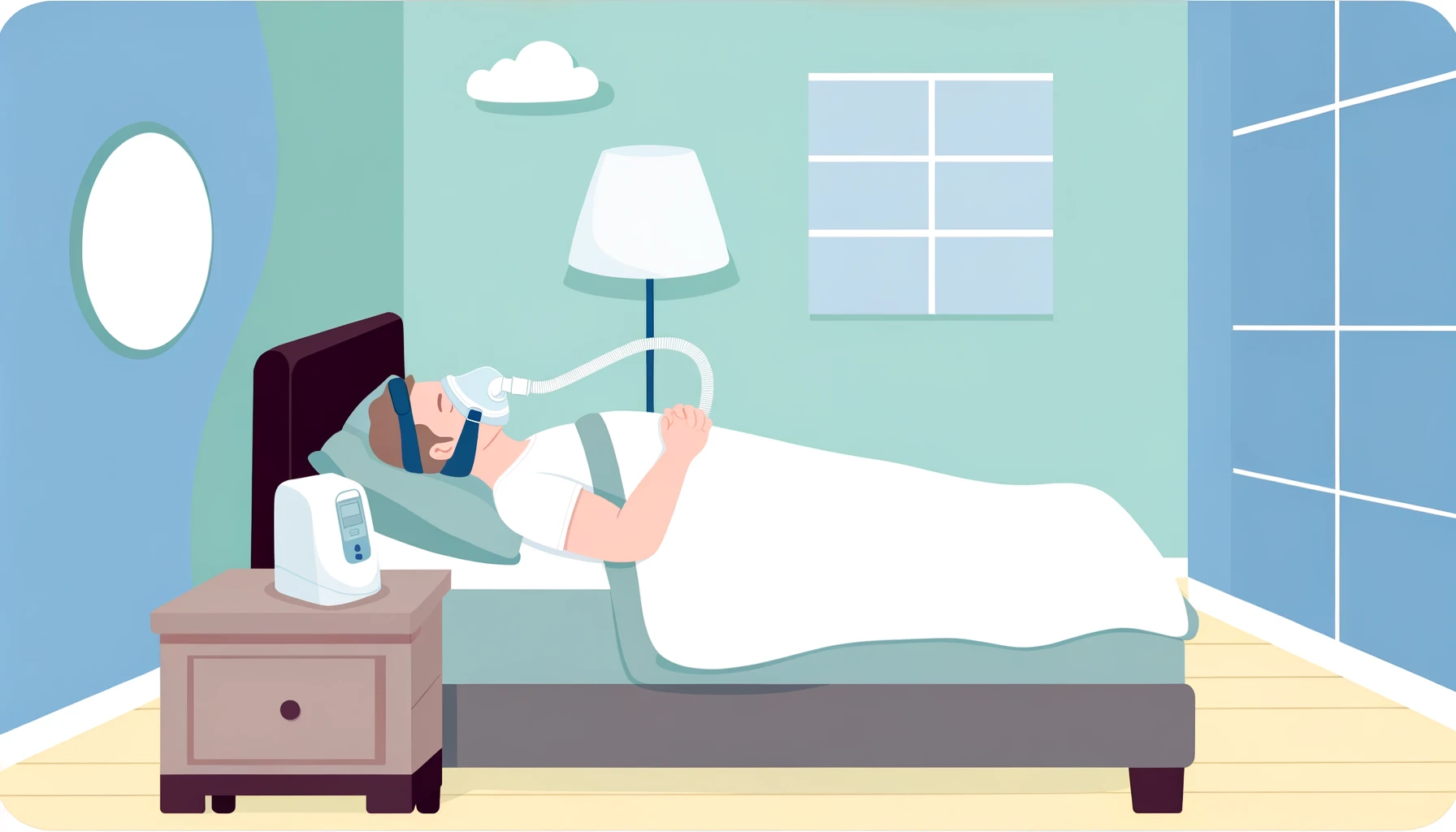Sleep apnea is a serious sleep disorder where a person’s breathing repeatedly stops and starts during sleep. This condition can lead to significant health problems if left untreated. There are three main types of sleep apnea:
- Obstructive Sleep Apnea (OSA): This is the most common form, caused by an obstruction of the airway, usually when the soft tissue in the back of the throat collapses and closes during sleep.
- Central Sleep Apnea (CSA): Unlike OSA, central sleep apnea is not caused by a physical blockage of the airway. Instead, the brain fails to signal the muscles to breathe due to instability in the respiratory control center.
- Complex Sleep Apnea Syndrome: Also known as treatment-emergent central sleep apnea, it occurs when someone has both obstructive sleep apnea and central sleep apnea.

Symptoms of Sleep Apnea
Common symptoms include:
- Loud snoring
- Episodes of stopped breathing during sleep, often noticed by another person
- Gasping for air during sleep
- Awakening with a dry mouth
- Morning headache
- Difficulty staying asleep (insomnia)
- Excessive daytime sleepiness (hypersomnia)
- Difficulty paying attention while awake
- Irritability
Causes and Risk Factors
For obstructive sleep apnea, risk factors include being overweight, having a narrow airway, being male, older age, family history of sleep apnea, use of alcohol or sedatives, smoking, and nasal congestion.
For central sleep apnea, risk factors include being older, heart disorders, using narcotic pain medications, and stroke.
Health Risks Associated with Sleep Apnea
Untreated sleep apnea can lead to a number of health issues, such as:
- High blood pressure
- Heart problems
- Type 2 diabetes
- Metabolic syndrome
- Complications with medications and surgery
- Liver problems
- Sleep-deprived partners
Diagnosis and Treatment
Diagnosis typically involves an overnight sleep study that monitors your sleep and breathing. Treatments for sleep apnea might include lifestyle changes (such as losing weight, changing sleep positions to improve breathing, quitting smoking), using a continuous positive airway pressure (CPAP) machine, or possibly undergoing surgery to remove or adjust tissue blocking the airway.
It’s important for anyone suspecting they might have sleep apnea to consult a healthcare provider for a proper diagnosis and treatment plan.
This quiz is designed to help you understand if you might be experiencing symptoms related to sleep apnea. Please answer the following questions honestly. Remember, this quiz is not a substitute for professional medical advice, diagnosis, or treatment.
Sleep Apnea Quiz
Questions:
- Do you snore loudly (louder than talking or loud enough to be heard through closed doors)?
- Yes (1 point)
- No (0 points)
- Do you often feel tired, fatigued, or sleepy during daytime?
- Yes (1 point)
- No (0 points)
- Has anyone observed you stop breathing during your sleep?
- Yes (1 point)
- No (0 points)
- Do you have or are you being treated for high blood pressure?
- Yes (1 point)
- No (0 points)
- Is your Body Mass Index (BMI) more than 30 kg/m2?
- Yes (1 point)
- No (0 points)
- Are you over 50 years old?
- Yes (1 point)
- No (0 points)
- Is your neck circumference greater than 16 inches (for women) or 17 inches (for men)?
- Yes (1 point)
- No (0 points)
- Do you often wake up with a dry mouth or sore throat?
- Yes (1 point)
- No (0 points)
- Do you frequently suffer from morning headaches?
- Yes (1 point)
- No (0 points)
- Do you find yourself waking up abruptly during the night gasping or choking?
- Yes (1 point)
- No (0 points)
Scoring:
- 0-2 points: Low likelihood of sleep apnea. Still, if you have concerns about your sleep, consult a healthcare provider.
- 3-5 points: Moderate likelihood of sleep apnea. It is advisable to discuss these symptoms with a healthcare provider.
- 6-10 points: High likelihood of sleep apnea. You should see a healthcare provider for a thorough evaluation and possible testing.
Conclusion
In conclusion, sleep apnea is a significant sleep disorder that affects many people, characterized by pauses in breathing or periods of shallow breathing during sleep.
Understanding its symptoms, risks, and treatments is crucial for managing its impact on health and well-being. The provided illustrations aim to demystify the use of CPAP therapy, a common and effective treatment for sleep apnea, by showing it in a comfortable and serene bedroom setting.
Recognizing the signs of sleep apnea and seeking professional medical advice are essential steps toward achieving better sleep health and improving overall quality of life.
Remember, if you or someone you know exhibits symptoms of sleep apnea, consulting with a healthcare provider for a proper diagnosis and treatment plan is vital.
My name is Phyllis Robinson MSN, RN. I have been a Registered Nurse for 27 years in the Cardiac Intensive Care Unit. I am passionate about cardiac care and heart disease. I also want this blog to be an educational tool that people can refer to for traditional and alternative treatment. I will blog on heart disorders such as high blood pressure, congestive heart failure, cardiomyopathy, and high cholesterol.
I received my Nursing degree from Baltimore Community College.
I went on to receive my Masters in Nursing from Walden University
I have worked for almost 30 years in Critical Care with a focus on heart health. I am an advocate of preventive healthcare.

